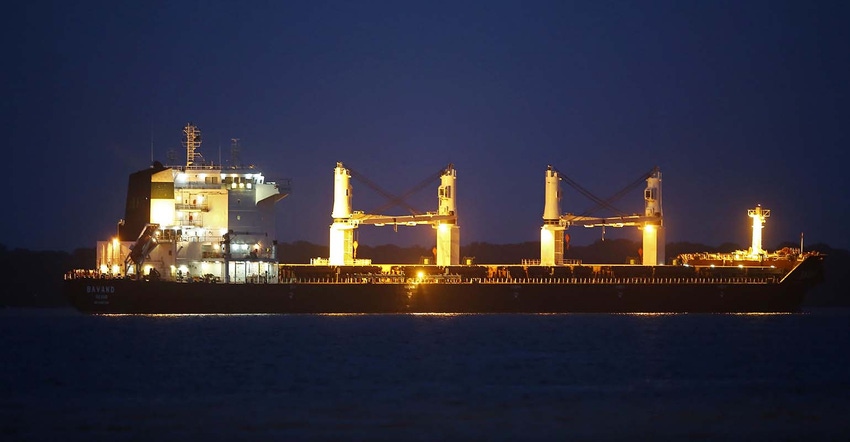
By Sabrina Valle and Tatiana Freitas
A Brazilian top court justice ordered Petroleo Brasileiro SA to refuel two Iranian ships stranded off the country’s cost after the state-controlled oil company refused to do so for fear of U.S. sanctions.
Petrobras, as the Rio de Janeiro-based oil giant is known, will comply with the decision, a person close to the company said. A spokesman for Justice Dias Toffoli, who ruled on the matter, declined to comment because the case was filed under seal.
The producer has said it could face “significant losses” if included under U.S. sanctions -- a concern echoed by Brazil’s Foreign Minister Ernesto Araujo. “We’ve been calling attention to the fact that Petrobras could be subject to losses in its U.S. activities and that remains being the case,” he told reporters in Brasilia after the decision. “But the company will act in accordance to the court’s determination.”
The two ships have been floating since early June off the port of Paranagua, about 450 kilometers (280 miles) south of Sao Paulo, one of them loaded with corn bound to Iran. The Islamic republic, which buys one third of all of Brazil’s corn exports, had threatened to cut its imports from the country unless the ships were refueled.
While Brazil has a long history of good relations with Tehran, President Jair Bolsonaro’s commitment to ripping up the country’s traditional foreign policy to side with U.S. President Donald Trump has put those ties in doubt. On Sunday, Bolsonaro told reporters Brazil was “aligned” with the U.S. policies, including on Iran.
Iran and the U.S. have been at loggerheads since last year, when Trump withdrew the U.S. from a 2015 nuclear agreement with the Islamic republic, calling it the “worst deal ever.” The fate of the vessels is the latest evidence of how the Trump administration’s policies are affecting other countries and rattling commodities markets across the globe.
Brazil’s detachment from Middle Eastern countries is not beneficial for its exports, and the South American nation should try to reconnect with them, said Ali Ahmad Saifi, executive director at CDIAL Halal, a company that accounts for about 60% of all the chicken that’s certified in the country in accordance to Islamic law.
“Brazil has the opportunity to keep great relationships with everyone. We don’t need to import foreign problems,” Saifi said. “Arab countries are important to Brazil’s exports; it’s important to have a great relationship with them.”
The Middle East imported around $9.7 billion in Brazilian products past year, according to Brazil’s trade ministry figures. Agriculture goods accounted for more than 70% of the total. Main exports to thee region include chicken meat, totaling $2 billion last year, followed by sugar, corn, iron ore, beef and soy products.
Brazil’s president is planning to visit the United Arab Emirates, Saudi Arabia and Qatar in October.
--With assistance from Samy Adghirni.
To contact the reporters on this story:
Sabrina Valle in Rio de Janeiro at [email protected];
Tatiana Freitas in São Paulo at [email protected]
To contact the editors responsible for this story:
Juan Pablo Spinetto at [email protected];
Tina Davis at [email protected]
Walter Brandimarte
© 2019 Bloomberg L.P.
About the Author(s)
You May Also Like




